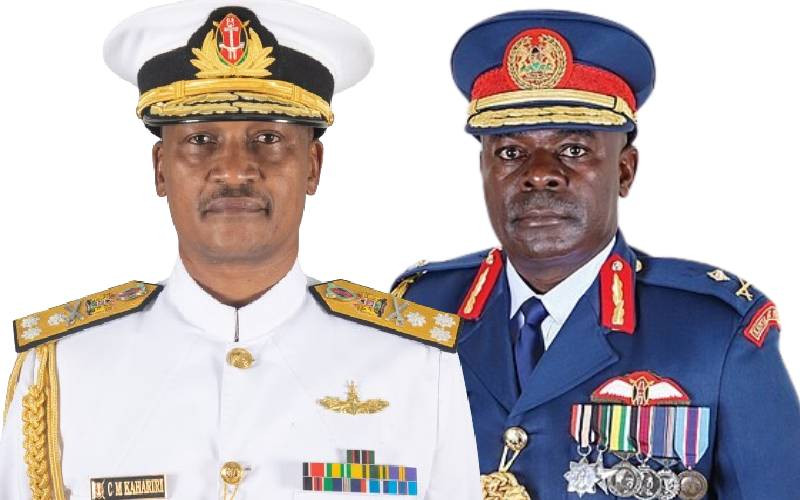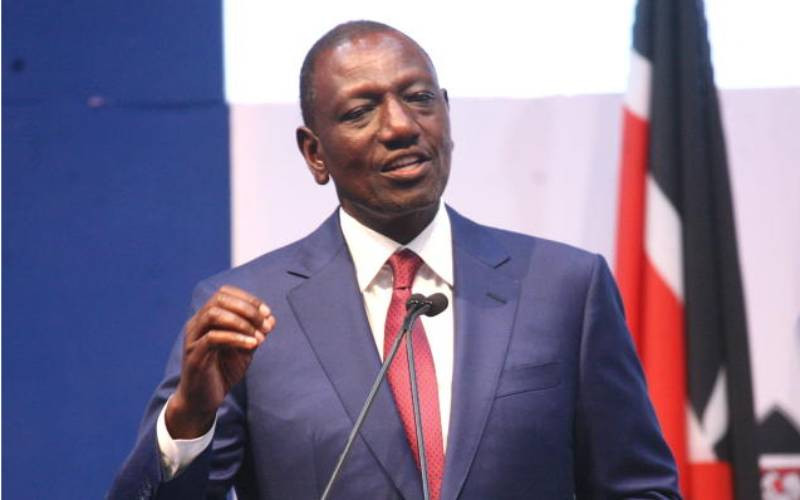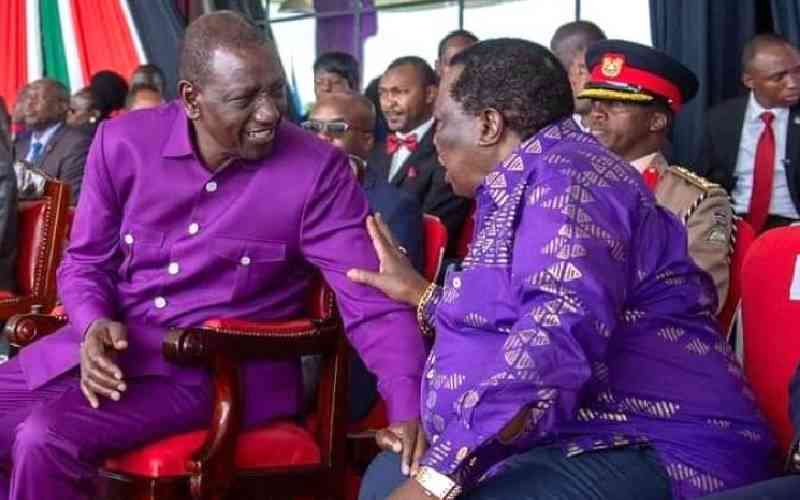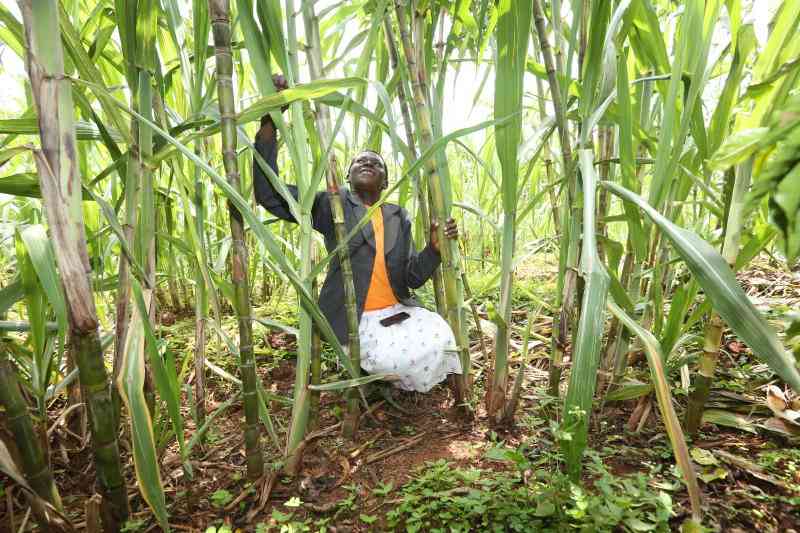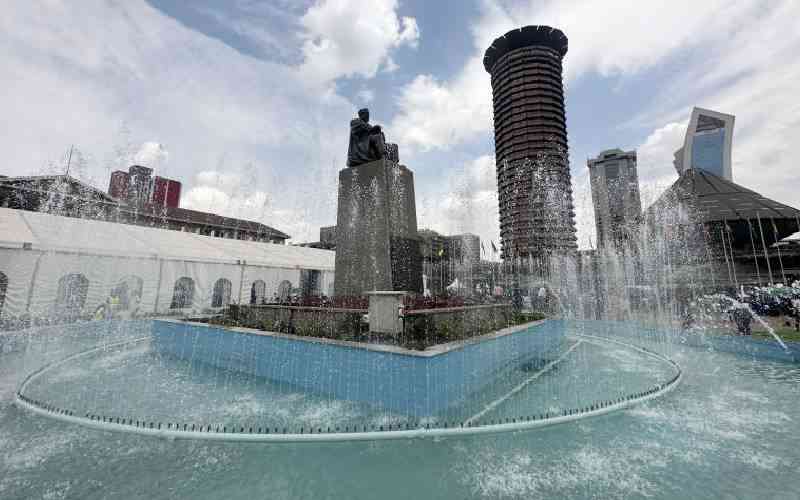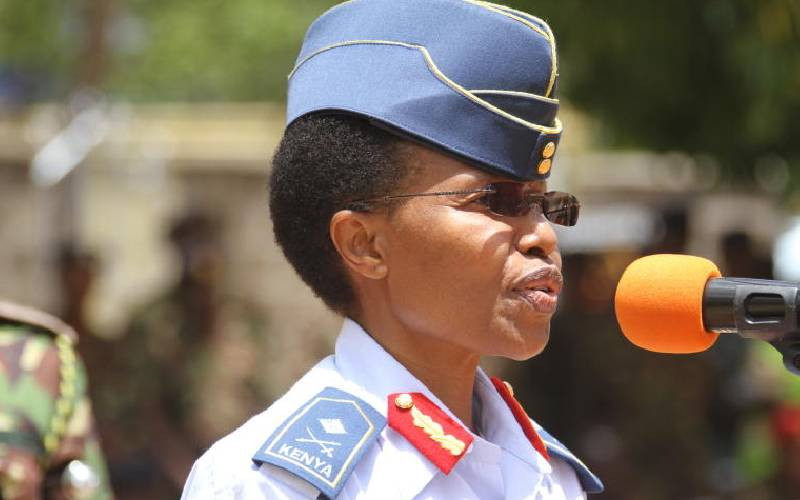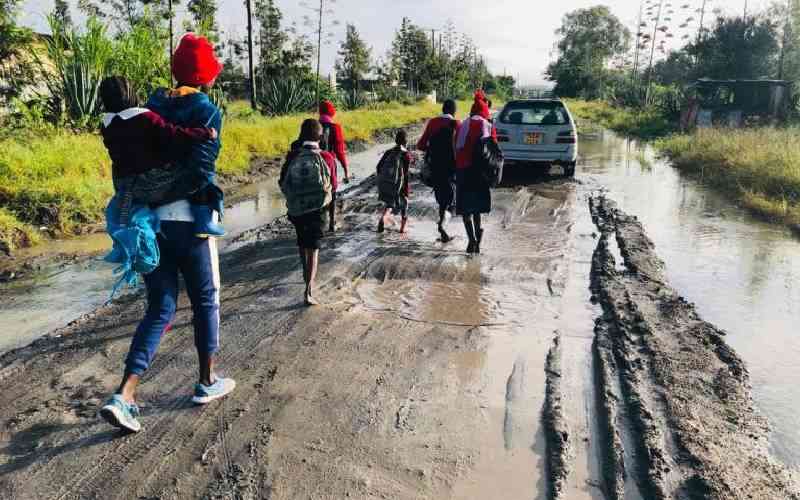 |
|
Presidential aspirant Uhuru Kenyatta addressing the crowd yesterday in Nakuru where he and United Republican Party’s William Ruto announced they had entered into a coalition ahead of the 2013 General Election. [PHOTO: BONIFACE THUKU] |
By Allan Kisia
Campaigns cost money...loads of money. In politics, the amount of money set aside for campaigns can mean the difference between success and failure for a candidate.
The country’s forthcoming elections have been rated the most expensive ever and, inevitably, aspirants must dig deeper into their pockets to fund their campaigns.
Fortunately, The National Alliance (TNA) presidential aspirant Uhuru Kenyatta, who teamed up with United Republican Party’s William Ruto on Sunday in his bid for State House, is considered to have the financial muscle to stage an enormous campaign.
In May, Uhuru unveiled his party amid pomp and colour in an event of a magnitude never witnessed before in this country, and which is estimated to have cost him a fortune.
But he is not the only candidate who is splurging big in the quest for State House.
Other presidential aspirants have also been displaying their financial might by criss-crossing the country in helicopters to popularise their bids.
Prime Minister Raila Odinga, Vice-President Kalonzo Musyoka, Deputy Prime Minister Musalia Mudavadi, Assistant minister Peter Kenneth, and MPs Ruto and Cyrus Jirongo just like Uhuru are no stranger to helicopters.
Alongside their campaign teams, largely made up of MPs, the hopefuls fork out millions of shillings to hire choppers and meet other campaign expenses.
Last year, Uhuru and businessman Chris Kirubi made it to the list of Forbes 40 Richest Africans.
Uhuru was ranked number 26 with a net worth of US$500 million (over Sh40 billion) while Kirubi was slotted at position 31 with US$300 million (over Sh24 billion).
The son of the country’s founding father, Mzee Jomo Kenyatta, Uhuru is heir to some of the largest land holdings in Kenya.
Misleading
The Kenyatta family of which he is a key member, owns over 500,000 acres of prime land in Kenya, along with other assets such as a stake in the Commercial Bank of Africa, a dairy company and a media company.
However, Uhuru did not feature in this year’s Forbes 40 list.
Stay informed. Subscribe to our newsletter
He dropped off due to uncertainty over who in his family is the chief custodian of the vast land holdings.
Last year’s list was compiled in consultation with a journalist, who came under attack for what people believed was misleading the magazine that Uhuru owned all of Kenyatta family assets.
Businessman Manu Chandaria also was not included in the Forbes list because the businesses he runs are believed to be owned by several family members. Chris Kirubi failed to meet the cut this year.
Forbes is an American business magazine owned by Forbes, Inc.
Acquire land
Published biweekly, it features articles on finance, industry, investment, and marketing. Forbes also reports on related subjects such as technology, communications, science and law.
The magazine is well known for its lists of the richest Americans (the Forbes 400), highest-paid stars under 30, and its list of billionaires.
The Kenyatta family land was acquired by the founding father in the 1960s and 1970s when the British colonial government and the World Bank funded a settlement transfer fund scheme that enabled Government officials and wealthy Kenyans to acquire land from the British at very low prices.
Successful career
Uhuru and his family also own Brookside Dairies as well as stakes in a local television station, K24 and a stake in Commercial Bank of Africa in Nairobi, among other interests.
Before his foray into politics in the mid 1990s, he was a successful businessman.
Uhuru studied at Amherst College in the US, where he was awarded a Bachelor’s degree in political science. Afterwards he returned to Kenya and he founded a hugely successful horticultural business, which he eventually sold off to focus on managing his family’s extensive business interests.
Uhuru has had a successful career in politics and public service. In 1999, he was appointed by former President Daniel arap Moi as chairman of the Kenya Tourism Board.
Two years later, in 2001, he was elected to Parliament and was subsequently appointed minister for Local Government.
In 2008 he was appointed Deputy Prime Minister under the Coalition Government and assumed position of Minister of Finance in 2009, but resigned after charges against him at The Hague were confirmed.
Notably, Uhuru first aimed at the presidency in 2002 on a Kanu ticket. He emerged second behind incumbent President Mwai Kibaki to become the leader of official opposition.
 The Standard Group Plc is a
multi-media organization with investments in media platforms spanning newspaper
print operations, television, radio broadcasting, digital and online services. The
Standard Group is recognized as a leading multi-media house in Kenya with a key
influence in matters of national and international interest.
The Standard Group Plc is a
multi-media organization with investments in media platforms spanning newspaper
print operations, television, radio broadcasting, digital and online services. The
Standard Group is recognized as a leading multi-media house in Kenya with a key
influence in matters of national and international interest.
 The Standard Group Plc is a
multi-media organization with investments in media platforms spanning newspaper
print operations, television, radio broadcasting, digital and online services. The
Standard Group is recognized as a leading multi-media house in Kenya with a key
influence in matters of national and international interest.
The Standard Group Plc is a
multi-media organization with investments in media platforms spanning newspaper
print operations, television, radio broadcasting, digital and online services. The
Standard Group is recognized as a leading multi-media house in Kenya with a key
influence in matters of national and international interest.


